The biggest challenge for every new coach in college basketball
The coaching carousel usually stops spinning in May, a few weeks after the national championship game ends. Jobs still available in late April, while the recruiting periods are going on, are surprising and uncommon. Yet, here we are in late July, and it has just wrapped up.
John Beilein leaving Michigan for the Cleveland Cavaliers was the stunner, leaving the Wolverines without a coach in mid-May. There were actually fewer dominoes than expected, however, as Michigan went with former NBA All-Star and Miami Heat assistant coach Juwan Howard. But that wasn’t all. Northern Arizona’s Jack Murphy left for Arizona; Holy Cross coach Bill Carmody retired in mid-June, ultimately replaced by Marquette assistant Brett Nelson; while Idaho fired Don Verlin on June 14. And then Cleveland State suddenly fired Dennis Felton on July 12 after just two seasons at the helm.
So (before another job opens), let’s go through every job and figure out what each new coach faces.
New coaches in top conferences | Other D-I hires
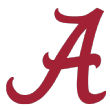
Biggest challenge: Keeping up with the rest of the SEC in recruiting. Oats’ success at Buffalo was mostly due to under-the-radar prospects and the fact his three best players a year ago were seniors. At Alabama, he’s going to have to go up against the likes of Kentucky, LSU, Florida, Auburn and others for recruits. It can be cutthroat. Avery Johnson was able to land top-tier recruits, but it didn’t always translate into wins on the court.
Early returns: Oats had a productive first few months in Tuscaloosa. It started by convincing the starting backcourt of Kira Lewis and John Petty to return to school instead of keeping their names in the transfer portal. He then went out and landed West Virginia graduate transfer James “Beetle” Bolden and Villanova transfer Jahvon Quinerly, a former five-star recruit. Alabama is also involved with several highly-touted 2020 prospects, including Daishen Nix, Nimari Burnett and MarJon Beauchamp.
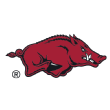
Biggest challenge: Long-term viability. Musselman has mostly done short-term turnarounds. At Nevada, he improved the Wolf Pack by 15 wins in his first season and totaled 110 wins in four seasons in Reno. And he did it primarily with transfers. Arkansas is going to be different. Musselman will have to hit the high school circuit a bit harder in recruiting, especially within the state. The state of Arkansas consistently produces talent, and many of those kids want to stay home. Musselman has to keep it that way.
Early returns: Musselman has mostly hit the transfer market during the early part of his tenure in Fayetteville. The Razorbacks have already landed four transfers, including two eligible next season in SMU’s Jimmy Whitt and UNC Wilmington’s Jeantal Cylla. They also pulled in Jacksonville transfer JD Notae and California transfer Connor Vanover. They might not be done yet, either. In 2020, Musselman and his staff are working hard to get involved with top-tier prospects — including Kyree Walker, whom they recruited at Nevada.
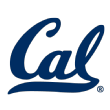
Biggest challenge: Finding an identity. It’s going to be a total rebuild for Fox at California. The Golden Bears are coming off a 16-47 record over the past two seasons under Wyking Jones, totaling five Pac-12 wins in that time. So how will Fox turn this thing around? Cuonzo Martin found short-term success by landing elite recruits, but that petered out fairly quickly, and he left for Missouri. Will Fox be able to compete for the West Coast’s top recruits? It’s unlikely to happen overnight, so he will have to go about things in a different way.
Early returns: Fox was dealt a tough hand right away, when top scorers Justice Sueing and Darius McNeill transferred out, followed by shooting big man Connor Vanover. The Golden Bears had to replace some of the outgoing talent, and went out and landed Texas A&M-Corpus Christi graduate transfer Kareem South. They also made the final six for five-star 2020 big man Walker Kessler and remain on the list of top-10 prospect Scottie Barnes.

Biggest challenge: Changing the system. The styles of Mick Cronin and Brannen couldn’t be more different. Cronin preached grind-it-out, half-court, defensive basketball. Brannen prefers to play with a little more tempo, sharing the ball and shooting from the perimeter. And now Brannen has to change the roster to fit that style. There are only a handful of holdovers from Cronin’s tenure still on the roster — but that group includes three starters. There might be some growing pains, but there’s enough talent to figure it out.
Early returns: There was a tumultuous stretch during the Bearcats’ spring, when players were transferring out or leaving their future in limbo — and it looked like Cincinnati was going to take a massive step back. But Brannen now has the Bearcats back in an NCAA tournament position. The biggest news was Jarron Cumberland returning to school, and his cousin, Oakland graduate transfer Jaevin Cumberland, also entered the fold. He landed a couple other transfers, and then also landed top-100 prospect Zach Harvey, who reclassified into 2019. Cincinnati is also off to a good start in 2020, with four-star point guard Mike Saunders already committed.
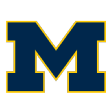
Biggest challenge: Recruiting, period. Howard has never recruited before. He went from playing in the NBA for two decades to being an assistant coach on the Miami Heat bench. He’s never had to do an in-home visit or chase a 16-year old for months in order to get a commitment. The one commitment he landed since taking over the Wolverines had already visited before Howard got the job. It’s taken other former NBA coaches time to get used to the grind of recruiting, and it will likely be the same for Howard.
Early returns: It’s still very early for Howard, given that he didn’t take over until late May. While the spring departures were already essentially sealed before his arrival, Howard didn’t have much time to make any additions to next season’s roster. But he did land Franz Wagner — who was visiting campus the day John Beilein left for the Cleveland Cavaliers. Howard also kept ESPN 100 point guard Zeb Jackson in the fold; Jackson is committed for the 2020 class. Howard has gotten in the mix for a few more 2020 prospects, including big men Walker Kessler and Hunter Dickinson.

Biggest challenge: Emulating what Hoiberg did at Iowa State. During Hoiberg’s time at Iowa State, he essentially wrote the book on how to rebuild a program, relying heavily on transfers and using an NBA-style offensive system. It’s now a different era, where the stigma of transfers is gone and nearly everyone in the country pursues them. It’s a different conference — a slower, more grind-it-out league. Can Hoiberg run it back with the same success in Lincoln? And if not, what’s Plan B?
Early returns: Unsurprisingly, Hoiberg and his staff revamped the entire roster in just a few months. Eleven new players will enter the program for the upcoming season. There are two holdovers from Tim Miles’ recruiting class: Akol Arop and Jervay Green. The Cornhuskers added graduate transfers Haanif Cheatham and Matej Kavas, and junior college guard Cam Mack followed assistant coach Matt Abdelmassih from St. John’s to Nebraska. Then there are three new freshmen and two sit-out transfers. Hoiberg also kept 2020 prospects Donovan Williams and D’Andre Davis committed.

Biggest challenge: Continuing the momentum. Nevada was one of the hottest programs in the country under Musselman the past few years. High-level transfers all had the Wolf Pack on their list, they landed a McDonald’s All-American and they went to three straight NCAA tournaments. Can Alford keep that going? It’s going to be a tough ask, especially since half the roster was seniors or left via transfer. But despite Alford’s perceived struggles at UCLA, he still went to three Sweet 16s in a four-year span, played up-tempo basketball and recruited effectively. He can win at Nevada.
Early returns: It certainly could have been worse for the Wolf Pack. While six of the team’s top seven scorers departed and four players transferred, Alford did convince five players to withdraw from the transfer portal and return to Reno — including former starters Lindsey Drew and Jazz Johnson, and potential all-conference player Jalen Harris. He also filled out the roster with a couple late signees, but also picked up two intriguing sit-out transfers in Desmond Cambridge (Brown) and Warren Washington (Oregon State).
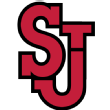
Biggest challenge: Recruiting New York City … or not? There’s a cliché when it comes to St. John’s basketball: You have to recruit New York City to win. You have to keep all the talent in New York City home for college. And while Anderson will love to keep the next Cole Anthony or Moses Brown home for college, strictly recruiting New York isn’t going to make or break his time at St. John’s. The Red Storm had perhaps the most talented roster in the Big East last season, and only one player went to high school in New York City. Anderson has to find guys to fit his style, regardless of region, and then translate that into wins.
Early returns: Getting LJ Figueroa to remove his name from the transfer portal and return to the Red Storm was huge. More importantly, Anderson is also casting a wide net in 2020. He hired a good recruiting staff, and they’re hoping to make an impact with the next class of recruits. St. John’s made the final five for ESPN 100 point guard Posh Alexander, a Bronx native, and the Red Storm are also heavily targeting 2020 point guard Andre Curbelo, a Puerto Rico native who plays on Long Island. Can they get any traction with elite 2021 recruit Jonathan Kuminga, who plays at Our Savior New American (N.Y.)?
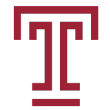
Biggest challenge: The transition. McKie spent 13 seasons as a player in the NBA, and then was on the sidelines of the Philadelphia 76ers as an assistant coach. Once he moved to college, he spent five seasons under Fran Dunphy. In order words, McKie has never been a head coach. Temple isn’t used to change. John Chaney was the head coach for 24 seasons, while Dunphy was there for 13 seasons. McKie will now look to carve out his own legacy, but it’s unclear what sort of system or style he’ll look to implement.
Early returns: Dunphy didn’t leave the cupboard bare for McKie, and because McKie was there for five years — and knew he would be taking over the head job for a year — there wasn’t a need to revamp the roster in the spring. McKie landed a commitment from Josh Pierre-Louis, the younger brother of Temple junior Nate Pierre-Louis, and also picked up a pair of Big Ten sit-out transfers in Jake Forrester (Indiana) and Tai Strickland (Wisconsin). Moving forward, McKie hit 2020 with a pledge from South Jersey wing Jahlil White.
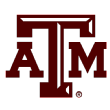
Biggest challenge: Patience. While Williams ultimately had success at Virginia Tech, it took until Year 3 to make the NCAA tournament. It might take some time with the Aggies as well. Not just because it’s a rebuilding effort, but because several SEC programs are hitting their stride or have more talent in the pipeline right now. Kentucky and Florida are mainstays; LSU, Auburn and Tennessee all had massive success the past couple seasons; Alabama and Arkansas both hired new coaches; Ole Miss and Mississippi State are coming off NCAA tournament appearances. It will take time to move up the pecking order.
Early returns: It’s not going to happen overnight in College Station — but Williams’ first recruiting class with the Aggies did. In mid-April, Texas A&M landed four players in one day: Cashius McNeilly is the nephew of assistant coach Jamie McNeilly, while Andre Gordon was a former Virginia Tech signee. Yavuz Gultekin and Quenton Jackson also pledged. Emanuel Miller committed a couple of weeks later. One negative was A&M losing out to Houston for Kansas transfer Quentin Grimes.
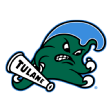
Biggest challenge: Balancing short-term and long-term goals. Hunter faces one of the tougher rebuilds of any new coach. The Green Wave didn’t win a single AAC game last season and has won exactly one AAC game since January 2018. So short-term, Hunter needs to simply make Tulane more competitive in the league. But it’s going to take time. Hunter did a great job at Georgia State at getting heralded recruits before they burst onto the scene and was solid in the transfer market. Expect him to try to do the same at Tulane.
Early returns: While Tulane still might be picked at the bottom of the league, Hunter did upgrade the talent in the spring. He hit the graduate transfer route quickly, bringing in Nic Thomas (Norfolk State), Christion Thompson (Rhode Island) and K.J. Lawson (Kansas). Thomas was a prolific scorer at the low-major level; Thompson was a solid role player; and Lawson failed to make an impact in the Big 12. He also went out and got Georgia transfer Teshaun Hightower and Arkansas transfer Ibby Ali, both of whom will sit out, and several freshmen. So far, the balancing act looks promising.
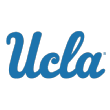
Biggest challenge: Winning over the UCLA faithful. When the UCLA fan base turns on you, it’s essentially over for you in Westwood. It happened with Steve Lavin, it happened with Ben Howland, it happened with Steve Alford. And those are three very different coaches in terms of style and recruiting, and all three achieved plenty of success. So Cronin will not only have to win games early on, but he’ll have to recruit like a blue blood and even perhaps play a more entertaining brand of basketball. It’s going to be an adjustment for everyone involved.
Early returns: It’s been fairly quiet for Cronin and the Bruins since he took over the day after the national championship game, with zero commitments or additions. That said, they’ve extended several offers in the 2020 class and made their targets pretty clear. Five-star point guard Daishen Nix has already been to UCLA’s campus and Cronin has made him a priority. They also offered R.J. Davis, a New York native, and earned visits from Andre Jackson and Mady Sissoko. And the state of California has not been forgotten, with Nimari Burnett, Ziaire Williams and Joshua Christopher all being targets. Christopher recently cut his list to five, with the Bruins earning a spot.
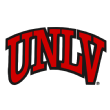
Biggest challenge: Competing with Pac-12 schools for recruits. UNLV continues to pine for the pinnacle of Runnin’ Rebels hoops, when they were one of the most attractive programs in the country, produced NBA players and played a fun style of basketball. Otzelberger will implement the fun style — but he also has to recruit top-tier talent to the desert. It’s the best program in the Mountain West, but he’s going to have to punch above the league in order to get players that the fan base will be drawn to. Dave Rice did it in 2012, when he landed eventual No. 1 pick Anthony Bennett and then reeled in three five-star prospects in 2014 and 2015. It didn’t translate consistently to wins, but the juice was back in Vegas.
Early returns: Nearly UNLV’s entire roster entered the transfer portal at one point or another, but five players ended up withdrawing — including top returnee Amauri Hardy. Otzelberger did land one of the best sit-out transfers on the market in South Dakota State transfer David Jenkins Jr., and also brought in Texas graduate transfer Elijah Mitrou-Long. Moving forward, Otzelberger has already hit the 2020 class hard. The Runnin’ Rebels have three pledges: Nick Blake, Isaac Lindsey and most recently, Donavan Yap. Tulane transfer Moses Wood will also sit out next season. Can Otzelberger stay in the mix for elite 2021 prospect Jaden Hardy, younger brother of Amauri?

Biggest challenge: Balancing Vanderbilt’s admissions. Stackhouse is different than most NBA guys that move to college. He’s sponsored an AAU program and worked on the grassroots circuit with high school players. That should give him a leg up in terms of understanding how recruiting works in college. That said, he won’t be able to come in like Penny Hardaway and recruit five-star prospects or Juwan Howard with one of the biggest brands in college sports. Vanderbilt has stricter academic standards, and Stackhouse will have to adjust. But hey, Bryce Drew figured it out with Darius Garland and Simi Shittu a couple of years ago.
Early returns: As we said, it’s not going to be easy for Stackhouse to cast a wide net and go after elite players due to Vanderbilt’s academic standards. But he did land quality transfers D.J. Harvey (Notre Dame) and Quentin Millora-Brown (Rice), and is fighting for some 2020 prospects. ESPN 100 guard Matthew Murrell is high on the Commodores’ list, while Osasere Ighodaro took an official visit to campus in June. They’re also in the final three for ESPN 100 guard Keon Ambrose, but Tennessee is in a good spot for him.
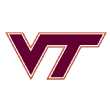
Biggest challenge: It’s a new world. Young has never been at this level before. He was the head coach at Wofford for 17 years, and before that he was an assistant coach with the Terriers for 13 years. Young is entering an entirely different level of basketball. It’s expected that Young will still play a similar style to the one he played at Wofford, predicated on spacing the floor with shooters and then making shots. But he’ll have to get higher-level athletes to compete in the ACC. If he can recruit guys to fit his system while also landing a couple top-100-caliber guys from the mid-Atlantic and North Carolina, it can work.
Early returns: Young just needed bodies to fill out the roster in the spring, but he did land some noteworthy guys for the Hokies moving forward. While he brought in Wofford transfer Keve Aluma and former Wofford signee Hunter Cattoor, the biggest coup was ESPN 100 guard Jalen Cone, who reclassified from 2020 into 2019 and picked Virginia Tech. Young has made steady progress in the 2020 class, too. In late July, he convinced ESPN 100 guard Joe Bamisile to flip from Northwestern to Tech. The Hokies also made the final five for ESPN 100 big man P.J. Hall, and are involved with guards Myles Tate, Rondel Walker and Darius Maddox — and also expanded the target list following the first July period.

Biggest challenge: Breaking the mold. Washington State has not been a very good basketball program. Tony Bennett led the Cougars to the NCAA tournament in 2007 and 2008, but besides those two years, it’s been a struggle. Those were the only two tournament appearances Washington State has made since 1994, and the program has only been to six NCAA tournaments in its history. They haven’t finished above .500 in the Pac-12 since 2008. It’s a tough hill to climb for Smith — and that translates to the recruiting trail.
Early returns: Like several other coaches on this list, Smith had to revamp the Washington State roster during the spring, leaving him little time to dig into 2020. The Cougars added seven new players in the spring, including three transfers and four freshmen. Colorado State transfer Deion James is the headliner, although Australian guard Ryan Rapp and Ukrainian big man Volodymyr Markovetskyy are intriguing. Smith also reeled in a 2021 prospect, in-state forward Nathan Rawlins-Kibonge. Rawlins-Kibonge had just two scholarship offers, and committed the same day Washington State offered.
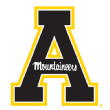
What’s the challenge? Carry over momentum from Presbyterian. Kerns quietly did a terrific job at Presbyterian last season, winning 20 games at a program that had never won 15. Now he goes to App State, which hasn’t finished above .500 since 2011.

What’s the challenge? Replacing a legend. Rick Byrd was the head coach of the Bruins for 33 years and won 805 games. Alexander was terrific at Lipscomb and was the best choice possible.

What’s the challenge? Succession of power. Whitesell’s two predecessors were Nate Oats and Bobby Hurley. Both had huge success and are now Power 5 coaches.
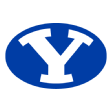
What’s the challenge? Getting back to the NCAA tournament. Gonzaga is the WCC powerhouse, but Saint Mary’s has been the clear second-best team. BYU needs to push the Gaels for second.
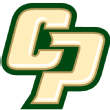
What’s the challenge? Being competitive in a wide-open league. The Big West has a rotating cast of teams near the top of the standings, but Poly’s never one of them. They’ve finished above .500 in the league four times in the past 20 years.
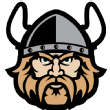
What’s the challenge? Fielding a roster. Eight players have entered the transfer portal since June 12. When Dennis Felton was fired, it was supposed to settle the drama. Instead, it’s only exacerbated the roster questions.

What’s the challenge? Taking the next step. Elon moved to Division I on a full-time basis in 1999 and has been in three conferences since then. Now that they’re settled in the CAA, it’s time to push for the NCAA tournament.
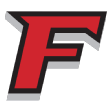
What’s the challenge? Catch up to Quinnipiac. A decade ago, Fairfield had Ed Cooley and won 20-plus games three years in a row. Now, the Stags are behind in-state rival Quinnipiac in nearly every department.

What’s the challenge? Bring stability to the program. In the wake of Mike Lonergan’s departure, Maurice Joseph steadied the ship, but things fell apart in a couple of years. Christian will bring a new system to D.C.
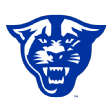
What’s the challenge? Recruit at a high level. Ron Hunter reeled in plenty of talented prospects during his time with the Panthers, both from high schools and on the transfer market.
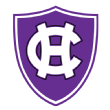
What’s the challenge? Late start, high-academic league. Nelson didn’t take over until early July — and the ex-Marquette assistant also has to change his recruiting approach coming from the Big East to an academic league in the Northeast.

What’s the challenge? Out on his own. Blakeney has some of the most impressive basketball pedigree among new coaches, playing under Mike Krzyzewski and coaching under the likes of Mike Brey, Lefty Driesell and Tommy Amaker. He’s never been a head coach, though.
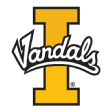
What’s the challenge? Prove himself. Claus took over on an interim basis, and the Vandals are coming off a five-win season. But they won 22 games just two seasons ago, so things aren’t as dire as they seem.

What’s the challenge? Find the next Daulton Hommes. Looney coached Hommes, the Division II Player of the Year, at Point Loma — and someone of that caliber would help the Bengals tremendously.
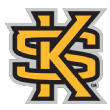
What’s the challenge? Awaken the sleeping giant. Some people in the state think Kennesaw State can be a big-time job, given its surrounding area, budget and facilities. But they’ve never even finished .500 since moving to Division I.
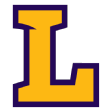
What’s the challenge? Adjust to Division I. Acuff was terrific as the head coach of Division II Alabama-Huntsville, but now he’s taking over a program that went to the NCAA tournament in 2018 and lost in the NIT title game in 2019.
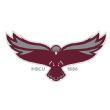
What’s the challenge? Get to the NCAA tournament. The Hawks have never heard their name called on Selection Sunday, and it doesn’t seem likely to happen soon, but that has to be the goal for Crafton.
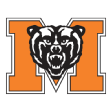
What’s the challenge? Make a statement as a head coach. Gary has been a terrific assistant coach at a number of stops, including the past several years at Purdue. But during his two seasons as a head coach at Centenary, he went just 16-44.
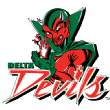
What’s the challenge? Adjusting to college. Hunter spent 17 seasons in the NBA, then was a coach in the NBA for a couple of seasons. But he’s only spent one season as a coach in college, at Buffalo in 2016-17.
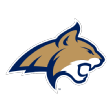
What’s the challenge? Bring Bobcats back to the glory of his playing days. Sprinkle was a big-time player at Montana State in the late ’90s and was part of the Bobcats’ last NCAA tournament appearance — in 1996.

What’s the challenge? Recruit above their weight class. With Broadus at the helm and well-connected guys like Brian Merritt on staff, Morgan State is going to be expected to recruit at a high level.
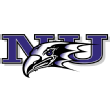
What’s the challenge? Back up the hype. Beilein enters the Division I level with name recognition due to his father, his time at West Virginia — and his recent success at the Division II level. Niagara has high hopes.
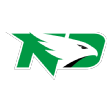
What’s the challenge? Upstage its intrastate rival. With North Dakota now in the Summit, it’s in the same conference as North Dakota State — which has been to the NCAA tournament three times in six years.
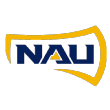
What’s the challenge? Prove yourself in one year. Northern Arizona has won 29 games total in the past four years — and now Burcar has just one season as the interim boss.
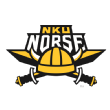
What’s the challenge? Keep moving forward. When the Northern Kentucky job opened in 2015, some people considered it a sneaky-good job. John Brannen proved that, going to two NCAA tournaments and winning 72 games the past three seasons. Horn has to keep the momentum going.
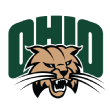
What’s the challenge? Overcome personnel losses. When Boals got the job, he had two solid anchors on which to build in Jason Carter and Teyvion Kirk. Both players entered the transfer portal a short time later.
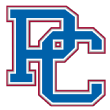
What’s the challenge? Not take a step back. In Presbyterian’s first 11 years in Division I, it never finished .500. In Dustin Kerns’ second season at the helm, the Blue Hose won 20 games.
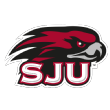
What’s the challenge? Creating his own legacy. Whatever he does in Year 1, Lange is going to be compared to Phil Martelli, who was let go after 34 seasons in some capacity at the university.
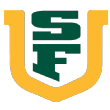
What’s the challenge? Three 20-win seasons in a row. Kyle Smith was with the Dons for three seasons — and won at least 20 games all three seasons. That creates a high bar for Golden to hit in Year 1.

What’s the challenge? Plan for life after Jalen Pickett. Pickett was one of the best freshmen in the country last season and tested the NBA draft waters. Another huge season and he’s likely going to the NBA.
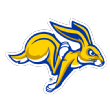
What’s the challenge? Find the next superstar Jackrabbit. Over the past several seasons, South Dakota State has had two absolute studs in Nate Wolters and then Mike Daum. Henderson would be hard-pressed to find another player of that ilk.

What’s the challenge? No grace period. Mullins is not in a position where he will get time after taking over a rebuild. The Salukis have won at least 17 games the past four seasons and finished in third place last season.
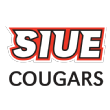
What’s the challenge? Everything. Since moving to Division I, the Cougars have never finished a season with more than 12 wins. Jon Harris totaled 31 wins in four seasons. Barone will get some time, though.

What’s the challenge? Take the next step. Kiefer was an assistant coach under Jay Ladner, helping lead the Lions to a regular season title in 2018 and a 12-6 league record last season — but they will hope to get to the NCAA tournament for the first time since 2005.
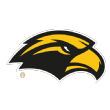
What’s the challenge? Replacing seniors. Of the six players who saw 20-plus minutes in the season finale against Longwood, four are gone. The Golden Eagles finished third in Conference USA, but they could be poised for a step back.

What’s the challenge? Massive rebuilding effort. Corey Williams won 22 Atlantic Sun games in six seasons at the helm and top returnee Abayomi Iyiola transferred out in late July. Jones has a tough task.
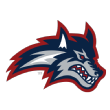
What’s the challenge? Continuity. Ford was kept on as head coach after Jeff Boals left for Ohio, mostly in an attempt to keep the momentum and roster intact. The Seawolves’ best player, Akwasi Yeboah, ended up transferring anyway. But there are pieces here.
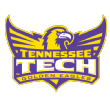
What’s the challenge? Translate location, facilities into recruits. Tennessee Tech has very good facilities and is in the middle of a fairly fertile recruiting area — but the Eagles haven’t been to the NCAA tournament since 1963.
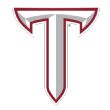
What’s the challenge? Consistency. Troy was in the NCAA tournament in 2017 and last place in the league in 2019. While Cross went to the tourney just once during his time at UT Arlington, he won 20-plus games five times and won 72 games his final three seasons.
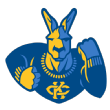
What’s the challenge? Stabilize the roster. In total, 15 UMKC players entered the transfer portal between March 18 and the present. Six players ended up withdrawing, but there were still some serious departures.

What’s the challenge? Transition back into college. Madsen had been on the Los Angeles Lakers staff since 2013, and has just one season of collegiate experience, back in 2012-13.

What’s the challenge? Survive the transition. William & Mary surprised everyone by firing Tony Shaver despite finishing fourth for the sixth straight year — and then four of the Tribe’s top five players transferred out.
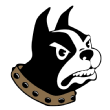
What’s the challenge? Following in Mike Young’s footsteps. Wofford was arguably the best mid-major team in the country last season, going unbeaten in SoCon play and winning 30 games. The Terriers have been to the NCAA tournament three times in the past six years and five times in the past nine.